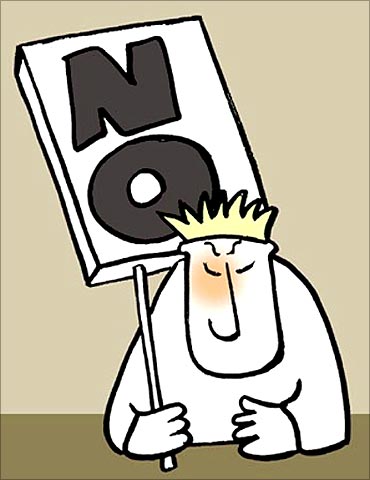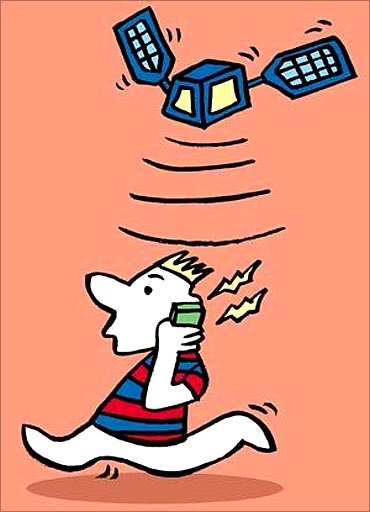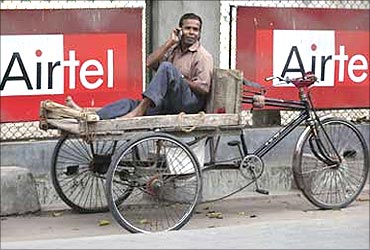Image: New norms to be tough
Photographs: Uttam Ghosh/Rediff.com Katya B Naidu in Mumbai
The Telecom Regulatory Authority of India's decision to enforce stricter norms on unsolicited calls and text messages may well be a boon in disguise, feel organised mobile marketing companies. The mobile marketing sector currently has innumerable small outfits engaged in the business of sending marketing communication. The new guidelines will make it tough for vendors to stick to the policies.
Photographs: Uttam Ghosh/Rediff.com Katya B Naidu in Mumbai
The Telecom Regulatory Authority of India's decision to enforce stricter norms on unsolicited calls and text messages may well be a boon in disguise, feel organised mobile marketing companies. The mobile marketing sector currently has innumerable small outfits engaged in the business of sending marketing communication. The new guidelines will make it tough for vendors to stick to the policies.
...
Pesky calls: Stricter norms may be a boon in disguise
Image: Unsolicited calls harass people.Photographs: Uttam Ghosh/Rediff.com
As a result, only serious players will survive. Mobile marketers say culling out selected vendors is not the only good news, but even customers will be more receptive to chosen communication patterns. Targeted communication would reach more willing consumers, bringing in more value to mobile marketing.
Pesky calls: Stricter norms may be a boon in disguise
Image: High penalty for unsolicited calls.Photographs: Uttam Ghosh/Rediff.com
"There is a cost of compliance for the new norms, where systems have to be set up to ensure that you are not on the wrong side of the law. Fly-by-night operators who would not be able to do this, might leave the business," said Shubho Ray, President of the Internet and Mobile Association of India (IAMAI). Last month, Trai issued a set of new guidelines for both marketers and regulators and warned of penalties ranging from Rs 25,000 to Rs 2,50,000 for defaulters.
Pesky calls: Stricter norms may be a boon in disguise
Image: Mobile users rise in India.Photographs: Reuters
According to these, consumers should receive marketing calls and text messages only if on the National Customer Preference Register. Subscribers would have the freedom to choose from specific segments where they would want to get marketing communications. These rules would require both companies and operators to set up compliance and auditing tools and platforms to classify text messages according to customer preference and segregate these.
Pesky calls: Stricter norms may be a boon in disguise
Image: Operators should have firewalls.Operators who have been made responsible by Trai should have firewalls to block unwanted test messages if these do not fulfill the requirements specified by the customer.
"A lot of smaller vendors who do not comply to norms either deliberately or due to lack of ability will be forced out of business. If they have specific value-add, they would be compliant," said Vishwanath Ramachandran, Chief Technology Officer, SMS Gupshup.
Pesky calls: Stricter norms may be a boon in disguise
Image: Mobile marketing to grow.
"Once the spam is controlled, it will reduce the irritation factor associated with mobile marketing. Bigger brands, too, will choose this path, since mobile marketing will become much more responsible," said Rajiv Hiranandani, Directors, Mobile Marketing Association, Asia Pacific. Experts say the regulations, to be enforced from February, might not reduce the number of subscribers who would eventually receive pesky calls and SMSes.
Pesky calls: Stricter norms may be a boon in disguise
Image: Bad news for telephone subcribers.Photographs: Reuters.
If the number of receivers was reduced, it would be detrimental to this business, which works on large volumes. However, experts say such choice to consumers would not hurt marketers monetarily. "If you look at the number of people registered on the Do Not Call Registry, they are just around 10 per cent of the total telecom subscribers. So, we expect it to only have only a minuscule impact," said Ray.









article